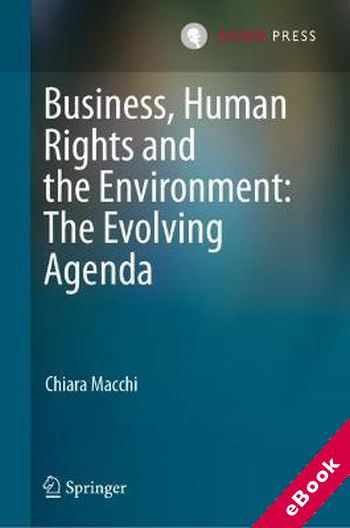
The device(s) you use to access the eBook content must be authorized with an Adobe ID before you download the product otherwise it will fail to register correctly.
For further information see https://www.wildy.com/ebook-formats
Once the order is confirmed an automated e-mail will be sent to you to allow you to download the eBook.
All eBooks are supplied firm sale and cannot be returned. If you believe there is a fault with your eBook then contact us on ebooks@wildy.com and we will help in resolving the issue. This does not affect your statutory rights.
More than ten years after the adoption of the UN Guiding Principles on Business and Human Rights, this book critically reviews the achievements, limits and next frontiers of business and human rights following the 'protect, respect, remedy' trichotomy. The UN Guiding Principles acted as a catalyst for hitherto unprecedented regulatory and judicial developments.
The monograph by Macchi proposes a functionalist reading of the state's duty to regulate the transnational activities of corporations in order to protect human rights and adopts a holistic approach to the corporate responsibility to respect, arguing that environmental and climate due diligence are inherent dimensions of human rights due diligence.
In the volume emerging legislations are assessed on mandatory human rights and environmental due diligence, as well as the potential and limitations of a binding international treaty on business and human rights. The book also reviews groundbreaking litigation against transnational corporations, such as Lungowe v. Vedanta or Milieudefensie v. Shell, for their human rights and climate change impacts. The book is primarily targeted at academic and non-academic legal experts, as well as at researchers and students looking at business and human rights issues through the lenses of legal studies (particularly international law and European law), political sciences, business ethics, and management. Additionally, it should also find a readership among practitioners working in the public or private sector (consultants, CSR officers, legal officers, etc.) willing to familiarize themselves with the expanding areas of liability, financial and reputational risks connected to the social and environmental impacts of global supply chains.